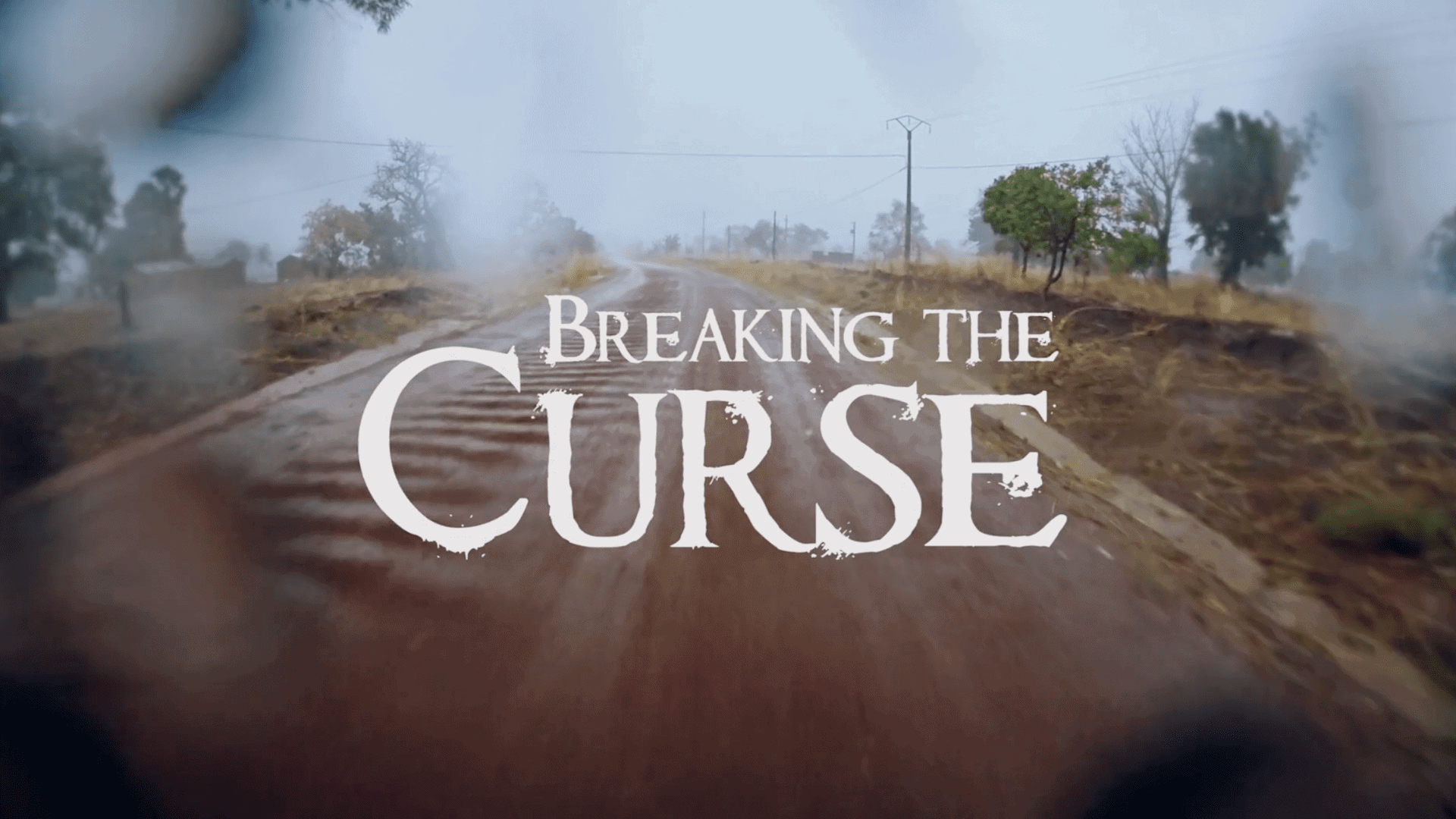
This compelling story of frontline mission is republished from October 2016, and has an accompanying video available at https://www.adventistworld.org/breaking-the-curse-documentary/--Editors
The father’s heart was heavy as he knelt before the family altar and presented his sacrifice to the spirit of his ancestor.
“You who gave us children, save them from the White man’s ways,” he pleaded. “See the misfortune that has come upon them. A strong wind is blowing against them. The French colonists are forcing our children to fight in a war that has nothing to do with our people. And the missionaries are making us send them away to school to learn useless things when we need our children to help us work the fields so we will have food to eat. Our children will grow up not knowing their own culture or practicing our tribal traditions.
The Otammari people believe the curse continues to prevent them from advanced development and success in society.
“You who are close to God, will you stand idly by? I command you to act! Make our children useless in the eyes of their kidnappers by snatching away their knowledge and power. Use the wind from all four directions to confuse their senses. If you do, then you will benefit from the many sacrifices we will continually offer to you. Accept this first sacrifice as an advance payment for the signed contract I place before you. Don’t remain indifferent but go now and act, and bring our children back.”
And so, in about 1915 near the beginning of World War I among the Otammari tribe in the region of Natitingou in Benin, West Africa—the curse was born.
Presenting the Curse-breaker
“They’ve tried to break this century-old curse, and they can’t,” explains Adventist Frontier Missions (AFM) worker Jason Harral, originally from Wyoming, United States, but who has served in the Natitingou region of western Benin since 2011. “They feel hopeless.”
The Otammari people believe the curse continues to prevent them from advanced development and success in society, according to AFM workers in Benin. And indeed, statistics indicate that the majority of the Otammari population do serve in low-key positions.

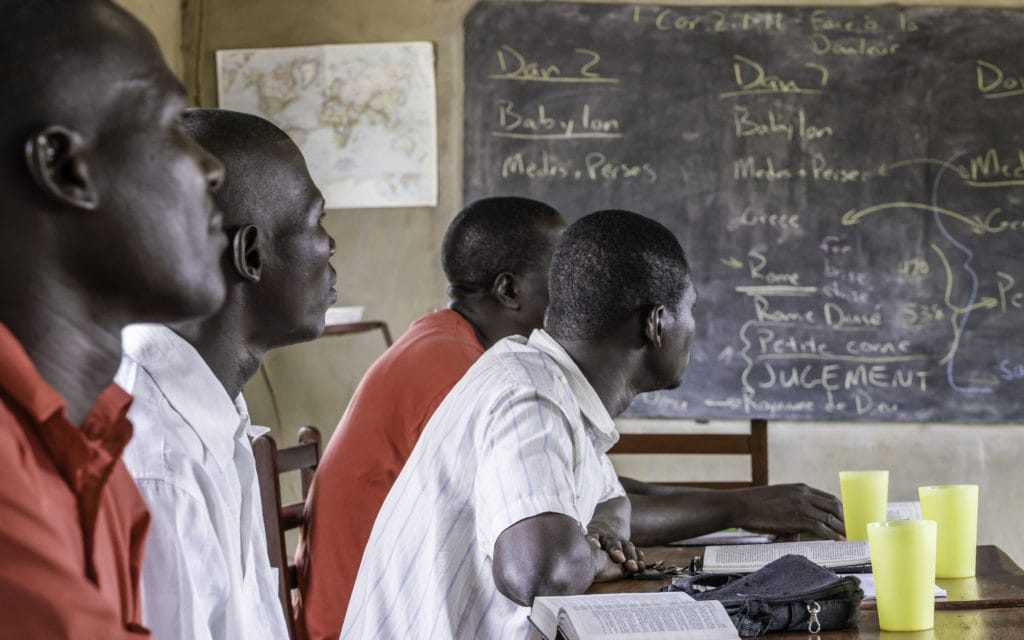
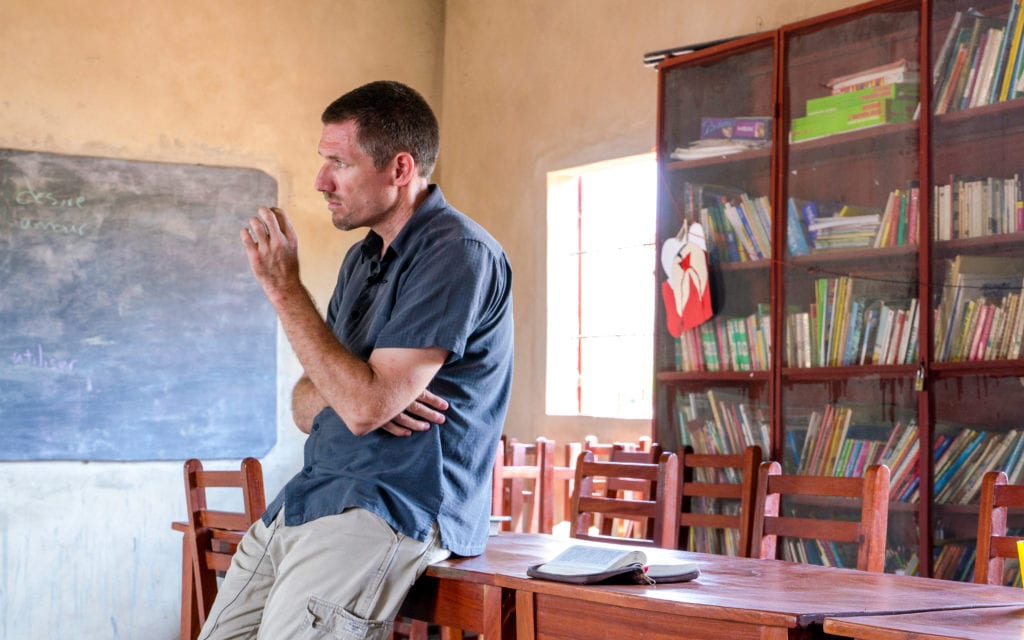
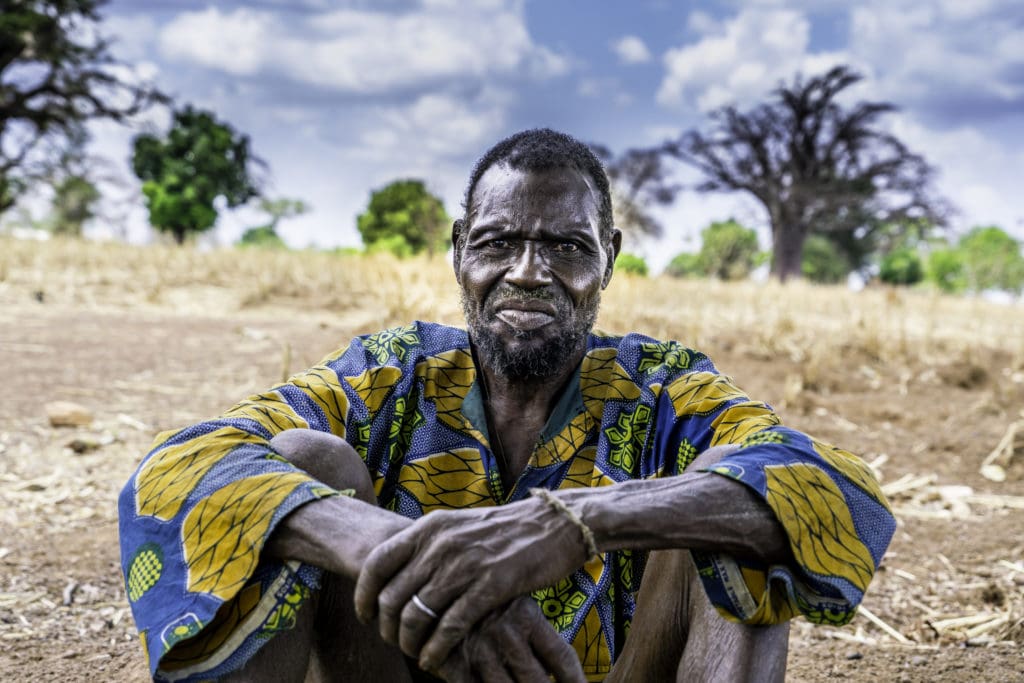
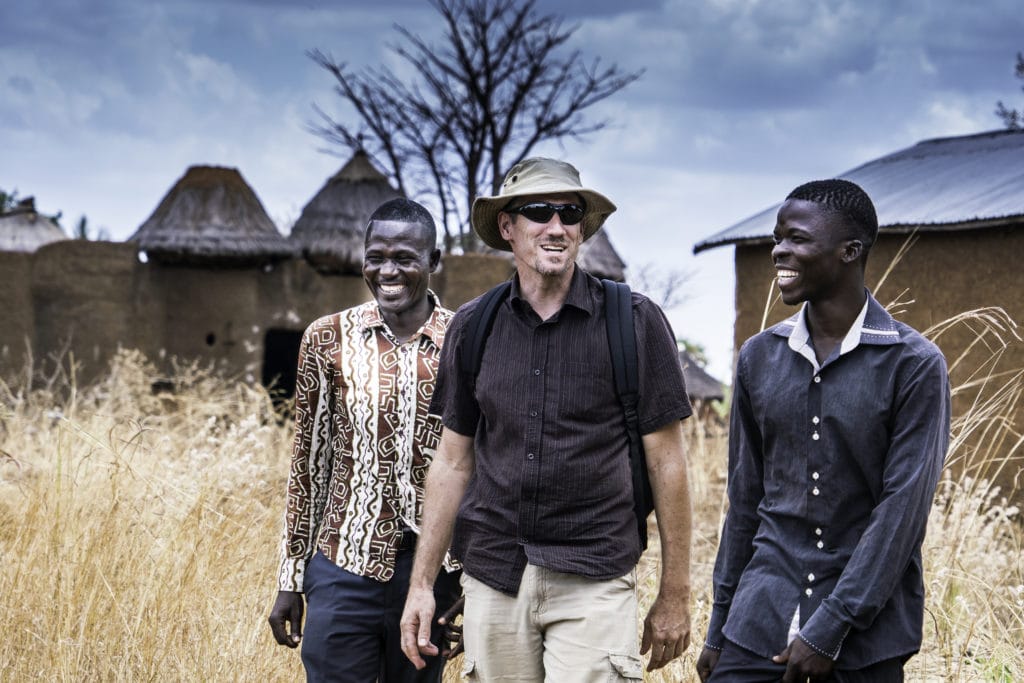
“This curse causes them not to have any ambition,” says Ulrike (Uli) Baur-Kouato, an AFM worker from Germany who has served in the region for 17 years. “They don’t see a need to help their children get an education higher than primary school because they say, ‘It’s useless. We can’t go any further than that, because this curse is on us.’ People don’t even try to get higher positions in society. Most of them just live from hand to mouth. They work their fields, and they just barely scrape by.”
Tribal spiritual leaders, or fetishers, have been unable to break the curse, Uli explains, because the one who pronounced the curse is dead and no one knows exactly what he said or what sacrifice he used. So according to tribal beliefs, the curse can’t be broken.
“That’s where our evangelists come in,” Jason says. “We’ve told them, ‘Look, we know Someone who was there. His name is Jesus, and He knows how to break this curse. His story is told in the Bible. Do you want to listen to this story?’”
He adds, “This is a very powerful tool to develop their interest in studying the Bible. We teach them about Jesus, the one who became a curse for us because He was hung on the tree and broke the original curse that occurred in the Garden of Eden. And if He broke that big curse, we tell them, He can break this little curse on your tribe, too.”
Laying the Groundwork
Jason and his wife, Magnhild (Maggi), from Norway, have been with AFM since 2009 and have served in Benin for five years. They and their three children—Reuben, 7; Kaia, 5; and Petra, 3—feel at home there.
“In the beginning we went through culture shock and had some very hard times, but now we feel that we belong. We’re part of it,” Jason says.
The local evangelists’ knowledge of the culture and insightfulness helped open the doors when they initially entered the villages to share the gospel.
Before Jason’s arrival in Natitingou—a city of some 100,000 people—Uli, along with AFM worker Suzie Baldwin, had ministered in Benin for almost a decade. Both came in 1999. They first worked with another missionary family, who left in 2003. Uli then married a Beninese man, Toussaint, in 2007, so there were just the three of them before the Harral family arrived. They focused on getting to know the people, becoming familiar with the culture, helping with community needs, strengthening the local church, and developing trust.
“Toussaint and I have put a lot of effort into neighborhood ministry,” Uli says. “We’ve especially tried to help the children and the youth to develop, to study, and to advance in their education. We’ve basically attempted to connect with the people and assist them with their individual needs.”
Culture-sensitive Evangelism
When Jason and Maggi arrived, Maggi began assisting with community ministries. Since much of the relational groundwork had already been laid, Jason focused on evangelism. Jason’s main goal was to train local people who had already accepted Christ and joined the Seventh-day Adventist Church to become evangelists. He says the villagers would never as fully respond to and accept AFM team members, whom they view as outsiders, as they would someone from their own culture who can speak their own tribal dialects. So he began weekly evangelism training sessions. About eight to 10 people, mostly men, attend, including AFM workers, local church leaders, and other interested individuals.
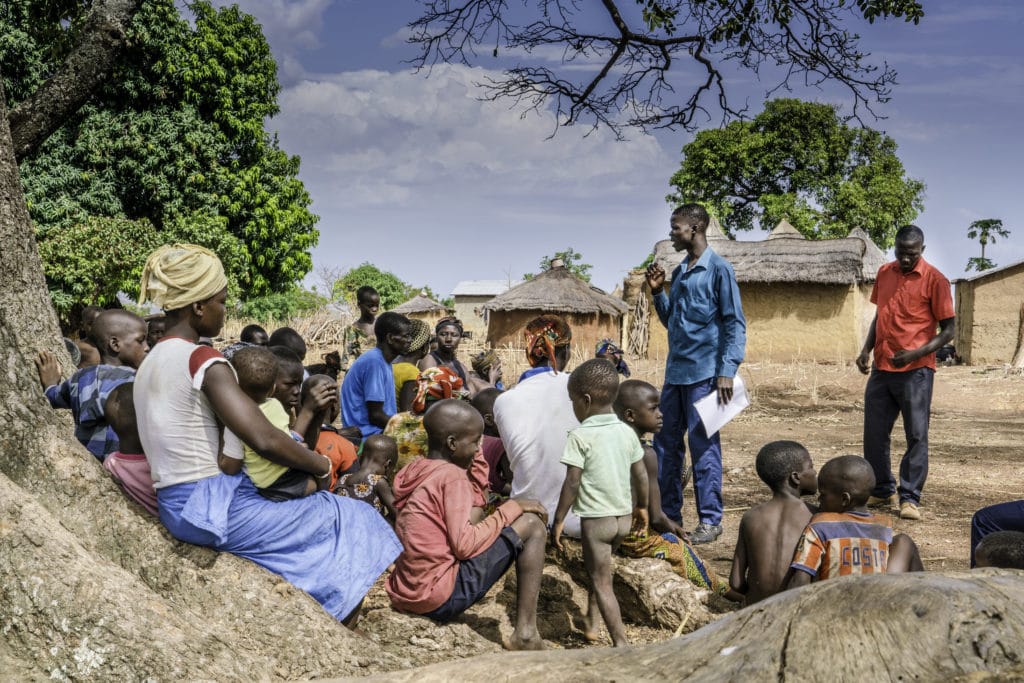
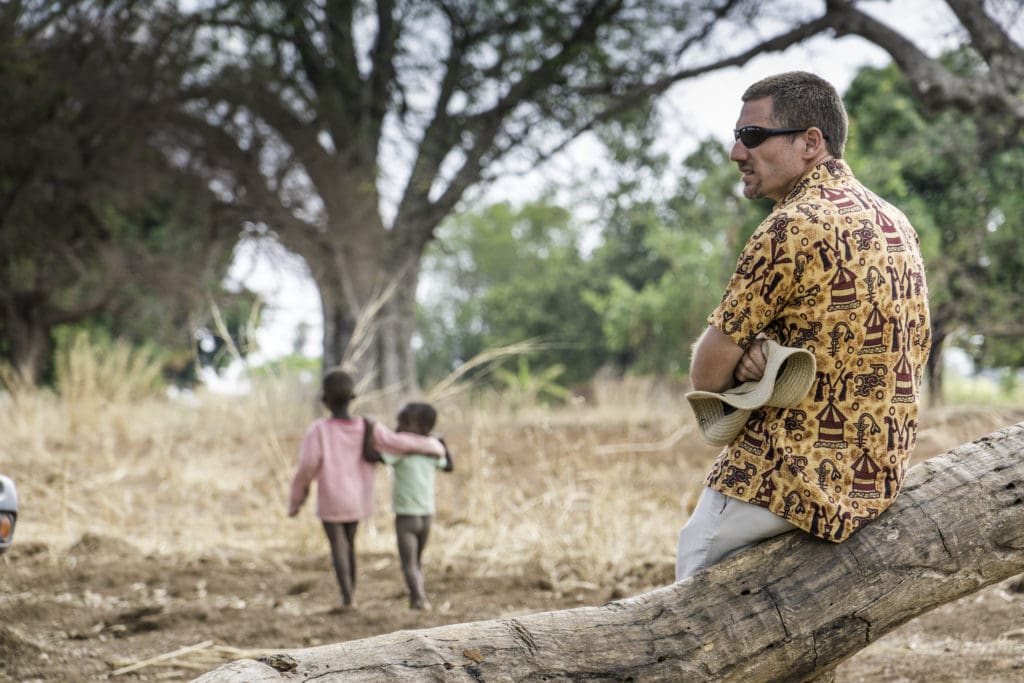
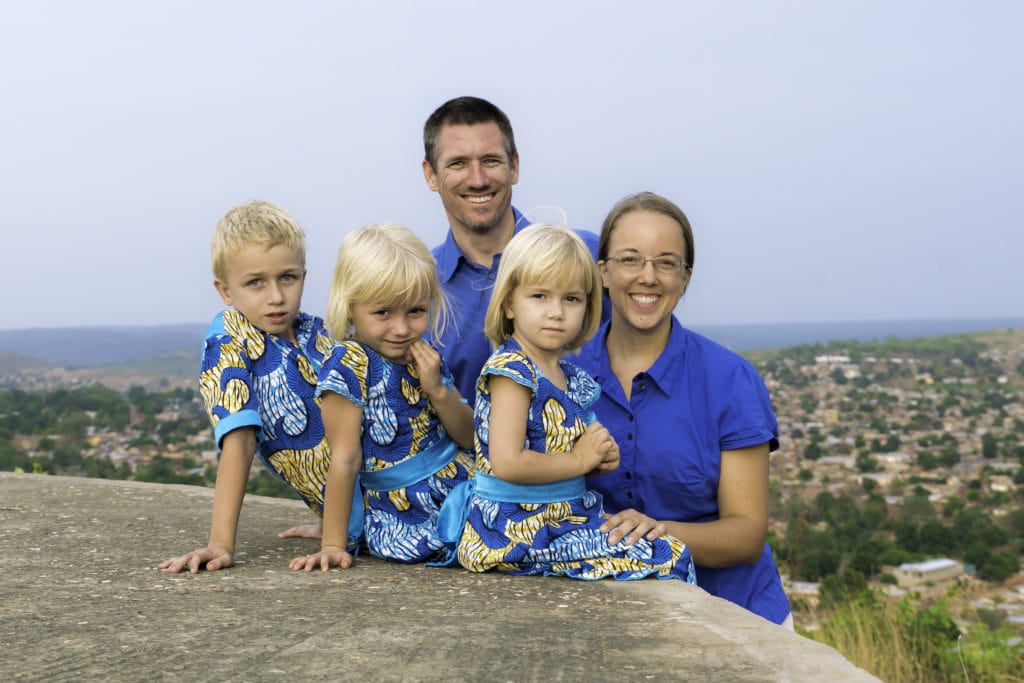
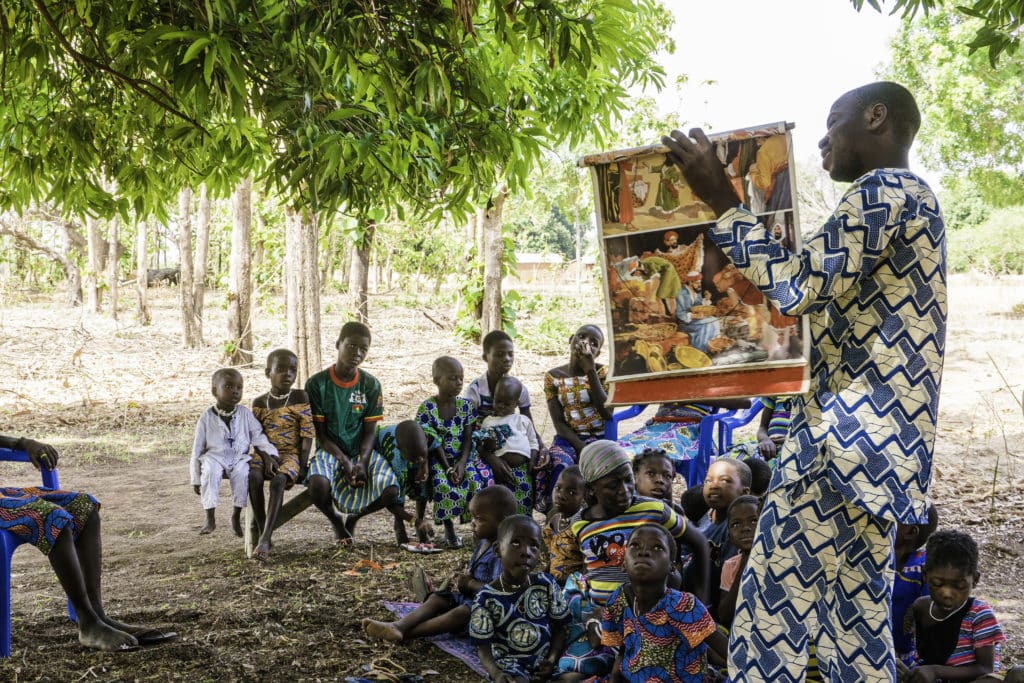
“We used to have more women come and be a part of it, but the women’s lives here are very full,” Jason explains. “We don’t get as many women as we would like.”
In order to be sensitive to the Otammari culture, the group developed Bible studies that present the gospel in a way that is relevant to the people and that are based on the curse still plaguing the community. The studies begin with Bible stories, starting with Creation and continuing through the Fall, the origin of evil, the war in heaven, the Flood, Abraham, and so forth. Subsequent phases of study become more thematic, many dealing with societal issues, such as polygamy and alcoholism. Eventually they branch out into leadership development.
Local Evangelists
Three local men who attend the training sessions and are playing integral roles in sharing the gospel message in surrounding villages are Hyacinthe Tianati, Jean Akolim, and Charles Korrobessaga. Hyacinthe, who has served as an evangelist for many years, lives in Boukoumbé, about 50 kilometers (31 miles) from Natitingou. He leads the Boukoumbé church and coordinates AFM’s evangelistic meetings in several nearby villages. Jean lives in Kouaba, about 25 kilometers (16 miles) from Natitingou, and works in the villages of Katayinka and Kounitchangou. Charles lives in Natitingou, where he holds Bible studies for people in the community. He also helps Jean with his evangelistic work and operates the local Adventist Book Center.
“Hyacinthe goes to the villages as an Otammari man saying, ‘I grew up in this culture. I grew up under this curse. I want to see our people set free from this curse. And I’m free from the curse today because of what Jesus has done.’ And the people can hardly resist this,” Jason says. “Hyacinthe cannot tell this story without starting a group of people wanting to study the Bible, wanting to meet every week. It’s so powerful. And now he’s training up young people, young men, who are going with him and learning how to do evangelism, learning how to tell this same story. It’s a beautiful thing!”
In order to be sensitive to the Otammari culture, the group developed Bible studies that present the gospel in a way that is relevant to the people and that are based on the curse still plaguing the community.
Jean, however, is originally from Togo, but he attended secondary school in Boukoumbé and learned the local language. He now lives in a small mud house in Kouaba and holds weekly Bible studies and Sabbath worship services in his home and under trees in the two nearby villages. The first time Jason attended one of Jean’s study classes, he says he was both amazed and thrilled.
“That was the reward for me, seeing Jean teach, seeing the energy,” Jason says. “He was sitting there in front of 40 or 50 people explaining to them the origin of evil. As I watched him I thought, He’s got it! I’ll have that image with me for the rest of my life.”
“The villages where Jean has been working for about a year now have been resistant to religions other than their own,” Uli notes. “Churches that other religious denominations tried to establish there have since been closed or abandoned. People predicted that Jean’s meetings wouldn’t last more than a few months, but a year later they are still going strong. The Lord is definitely blessing.”
Beginning With the Chiefs
The local evangelists’ knowledge of the culture and insightfulness helped open the doors when they initially entered the villages to share the gospel.
They first approached the village chiefs to ask permission. “They said, ‘Can we present something in your village? There is something we would like to tell the people,’” Jason explains. “The chiefs said OK, and then when the people gathered together the evangelists talked about the curse and how the Word of God tells how the curse can be broken. So they really had a captive audience. No one can say, ‘Don’t do this in our village,’ because the chief is part of it and has accepted it.
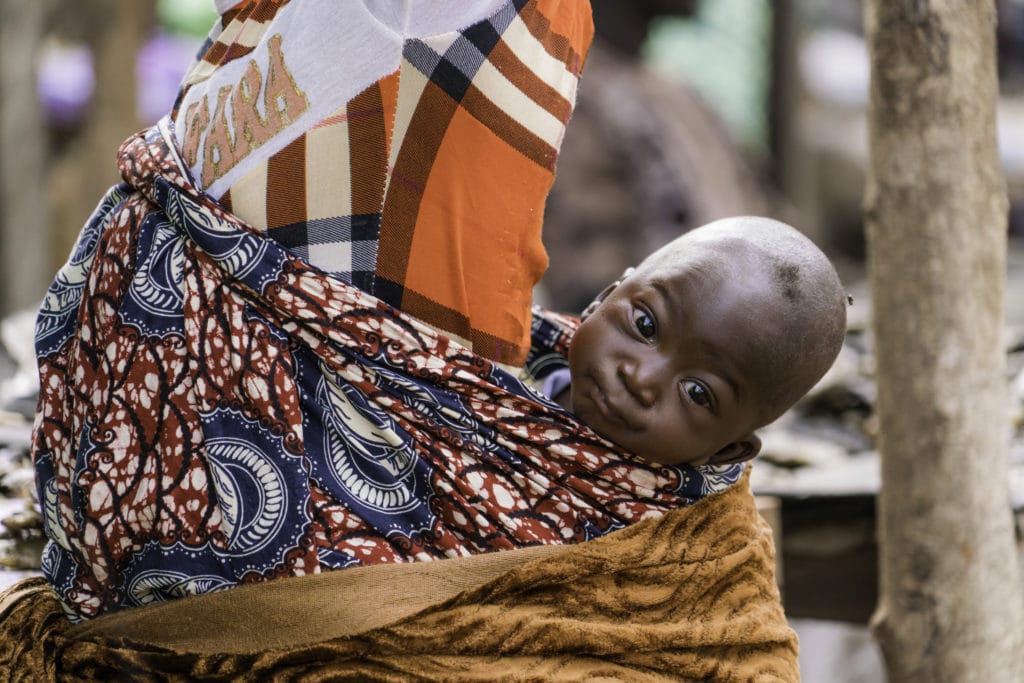
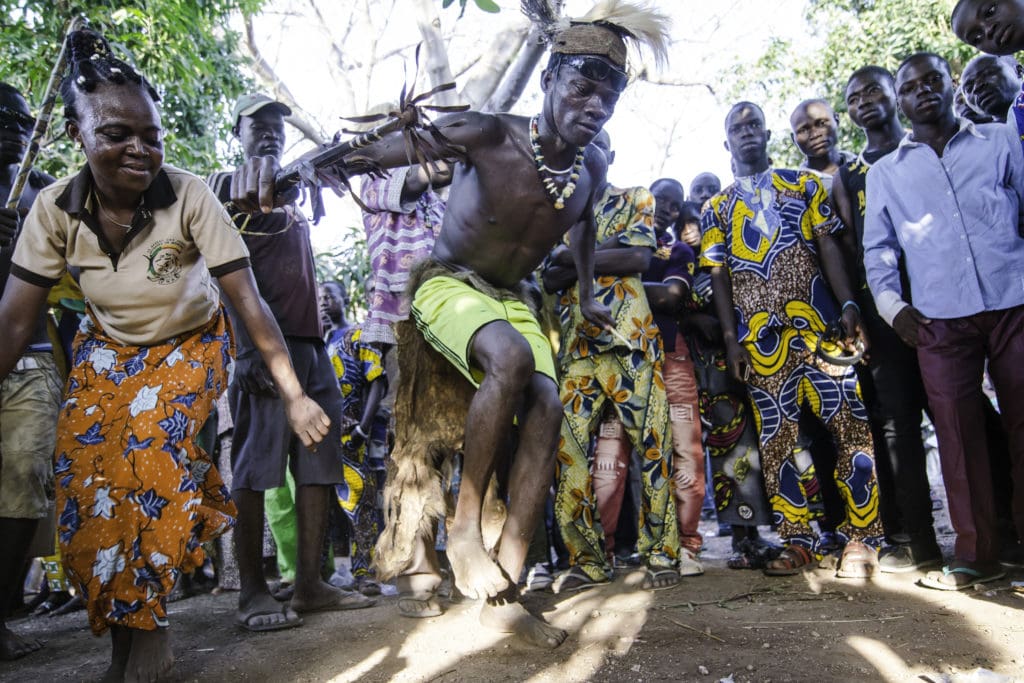
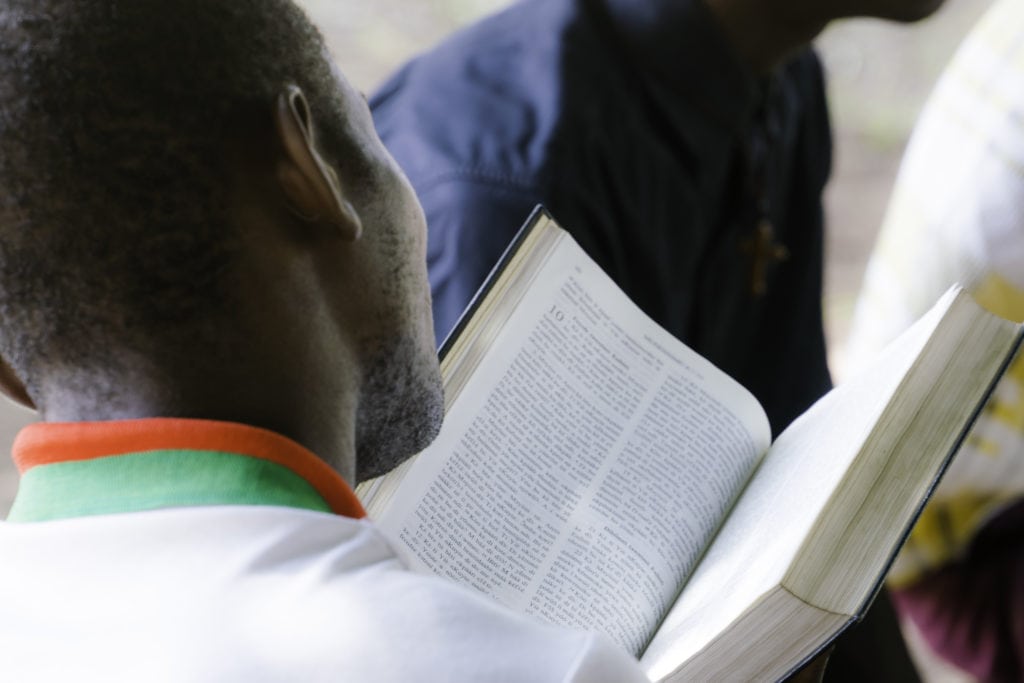
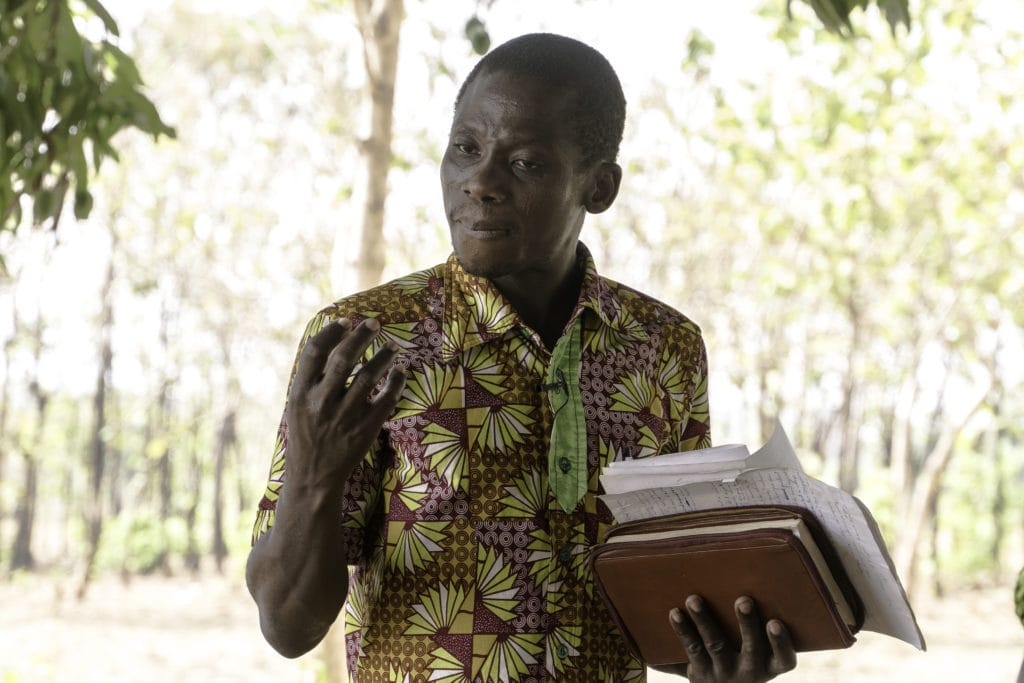
“There was some initial resistance because the villagers were afraid that the evangelists were there to destroy their culture,” Jason adds. “But Hyacinthe was very tactful and said, ‘We don’t want to destroy what is good in your culture. And we’re not going to force anyone to do anything. We’re not going to break any altars. We give everybody the freedom of choice. We’re just presenting a message, and it’s your choice whether to accept it.’ So that calmed them down.”
Talking Religion
Broaching the subject of religion among the Otammari isn’t very difficult, Uli notes. Describing the people as “open and friendly and joyful,” she says it’s rare to find atheists in Africa.
“Even people who are not Christian know that God is there,” she says. “It’s a very religious people. In Benin some people are Muslims, some are Christians, but most are animists. Many mix their beliefs into their own system. So it’s not difficult to talk about faith. But when it comes to Adventist biblical doctrines, there are certain lifestyle issues that are extremely difficult for people to adopt—such as not drinking alcohol. Alcohol is a very big problem in Benin.”
Animism has a very strong hold in the region, Uli explains, because the Otammaris believe that everything surrounding them has a living soul—not only people and animals but also places, rocks, and all of nature. When a person dies, they say the soul continues to live on and to some extent influences daily life.
“When someone gets sick, when someone dies, when they have a bad harvest—everything that is happening has a reason in the spiritual, or unseen, world,” Uli says. “And you need to find out what’s wrong in the spiritual world that is making this person sick or that person to fail in their work. So you consult a diviner, who is a spiritual middleman. This person will then consult the spirits and find out which of the ancestor spirits is upset at you for some reason, and what sacrifice, what ceremony, needs to be done to remedy the situation. It’s obviously very different from Christianity.”
Uli believes, however, that in spite of the different religious beliefs, the Lord is blessing the efforts of the AFM team, and that they are making a difference.
“When AFM missionaries go into a country, they are asked to first live with the people and observe them; study the language, the culture, the traditions, and the religion of the people,” she says. “And once you have that knowledge and have built friendships and trust, you can then find the best ways to touch their hearts.”
Moving On
Uli says the AFM project in Benin is almost complete and will likely phase out within the next two years. The local full-time evangelists will continue, supervised by the local pastor and the mission headquarters. But Uli and her husband will remain in Africa.
“I fell in love with Africa and the people here, and with an African,” Uli says, “and Toussaint and I have decided that we will continue to use our gifts to work with the children and youth in Natitingou.”
Their goals include building a home for orphaned and abandoned children on land that they personally own.
Suzi also married a Beninese man, Fidel, and transferred from Natitingou to Tanguieta in 2014, where they have started a new AFM project. Following the interviews for this article Jason and his family also left Benin and moved to Norway, where they are preparing to return soon to a different region of West Africa. It was not, however, an easy decision for them to make.
“In some ways we could stay here forever, but the work is wrapping up, so we’re choosing to move on,” Jason explains. “It’s not because of a desire to leave here; it’s just that the time has come to leave the work with others.”
Jason and Maggi’s prayer, however, is that the Lord will continue to bless the people of Benin and that His message of love will touch their hearts.
“What more can we do than leave it in the Lord’s hands, leave it with the Holy Spirit?” he says. “As the workers and the people continue to seek the Lord and to seek Jesus, I pray that they will have a revelation of Him that they will never forget.”
Sandra Blackmer is an assistant editor of Adventist World. This article is based on interviews conducted by Blackmer, as well as video footage and interviews done by Henry Stober, a professional videographer and photographer living in Germany. Jason and Maggi Harral now live with their four children near Oslo, Norway, and are active in sharing faith in their community.